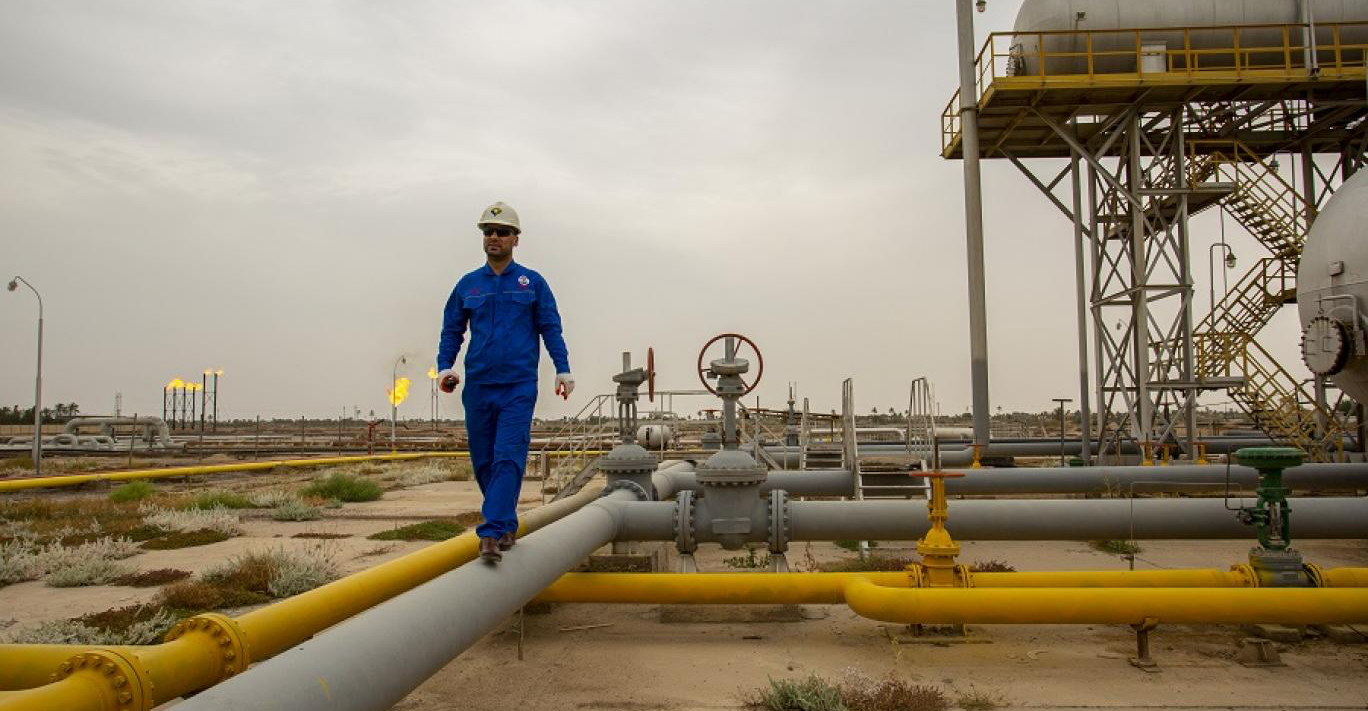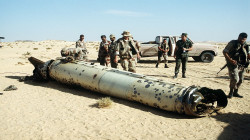Russia's oil comeback: how war de-escalation could widen Iraq's fiscal gap

Shafaq News/ Iraq’s economy, heavily reliant on oil revenues, faces growing uncertainty as global energy markets remain volatile. With over 90% of the country’s government revenue stemming from oil exports, any significant decline in prices could strain the national budget and widen the existing fiscal deficit.
As the Russia-Ukraine conflict nears potential de-escalation, concerns are mounting over the possibility of eased sanctions on Moscow, leading to increased Russian oil production and a subsequent drop in global oil prices. Such a scenario would directly impact Iraq, whose financial stability is tied to crude oil sales.
$70 Benchmark Under Threat
Iraq’s financial health remains closely linked to shifts in global oil markets. A potential ceasefire between Russia and Ukraine could lead to increased Russian crude production or a relaxation of Western sanctions, introducing additional supply into the market and exerting downward pressure on oil prices.
“Any agreement that leads to lower oil prices will affect Iraq,” stated Intissar Al-Jazairi, a member of Iraq’s parliamentary oil and gas committee. “Ninety-five percent of government salaries rely on oil revenues, and there is no alternative at present.”
In early 2024, Iraq’s budget calculations were based on an estimated oil price of $70 per barrel. However, Brent crude oil averaged approximately $83 per barrel in the first quarter of the year, while West Texas Intermediate fluctuated between $75 and $80 per barrel. Despite these relatively strong prices, Iraq’s dependency on oil leaves it vulnerable to future price downturns.
For 2024, the government projected total revenues of $86 billion, largely derived from oil exports. However, a sustained drop in prices could force Baghdad to reconsider its fiscal policies, including potential wage reductions in the public sector or delays in infrastructure projects. Nearly 9 million public sector employees rely on government salaries, and any disruption in payments could exacerbate economic difficulties.
Iraq already faces a fiscal deficit of approximately 64 trillion Iraqi dinars ($44 billion). Should oil prices experience a steep decline due to increased global production, this deficit could expand, threatening key development projects and essential public sector funding.
Asian Market Battle
The global oil market remains highly competitive, and any increase in Russian output could intensify challenges for Iraq, particularly in key markets such as China and India—two of its largest oil customers. The Ukraine conflict has already reshaped global energy dynamics, and a surge in Russian crude exports could further shift market balances.
Energy expert Ali Al-Saadi emphasized the risks posed by closer coordination between Moscow and Washington. “Any cooperation between Russia and the United States in the energy sector could significantly alter global oil supply, especially if it results in increased production from both countries.”
Al-Saadi pointed out that the US has strengthened its position as a leading oil producer through its shale industry, while Russia continues to maintain a strong export presence. A simultaneous production increase by both nations could drive prices lower, reshaping the power dynamics in global markets.
For Iraq, this scenario presents a difficult challenge. Approximately 67% of its total crude shipments are directed toward Asian markets, where competition with Russian oil is expected to intensify. Maintaining market share could necessitate price reductions, potentially undermining revenue.
“Any decline in oil prices means Iraq will not only earn less from its exports but could also see its foothold in key markets like Asia and Europe weaken,” Al-Saadi warned.
According to the International Energy Agency (IEA), Russia exported an average of 4.7 million barrels per day (bpd) of crude oil in 2024, with China and India purchasing nearly 80% of those shipments.
In comparison, Iraq’s crude oil exports averaged around 3.3 million bpd, with 67% directed toward Asian buyers. Increased competition could force Iraq to offer deeper discounts to retain key customers, particularly India, which has become a major importer of Russian crude since 2022.
Brent crude prices fluctuated between $75 and $80 per barrel over the past year, but analysts caution that a production surge from Russia and the USturk could push prices below $70 per barrel. A prolonged decline would further strain Iraq’s fiscal revenues, potentially compelling the government to revise its budgetary projections, delay infrastructure projects, or reconsider its production strategy within OPEC+.
OPEC+ Tensions
As a key member of OPEC+, Iraq plays an essential role in the alliance’s efforts to stabilize oil markets. However, Russia’s strategic economic priorities have sometimes diverged from OPEC+ agreements, raising concerns about the potential impact on collective price management efforts.
Oil Minister Hayan Abdul-Ghani has reiterated Iraq’s commitment to OPEC+ policies. “We remain committed to maintaining production levels in line with OPEC+ agreements to support price stability. Our priority is ensuring Iraq’s economic security in a fluctuating market.”
Despite Baghdad’s adherence to OPEC+ directives, fears persist that Russia’s increasing output could weaken the alliance’s ability to sustain stable prices. “Russia has a track record of making decisions that serve its economy, often at the expense of OPEC+ policies,” Al-Saadi remarked.
Cautionary Optimism
Although concerns over oil price volatility remain prevalent, some experts suggest that broader geopolitical stability could offer Iraq a degree of relief. If a ceasefire in Ukraine leads to a reduction in geopolitical risks, oil prices could stabilize or even rebound, strengthening Iraq’s financial outlook.
Economist Mustafa Faraj noted the potential benefits of reduced global tensions. “If this agreement leads to a sustained decrease in geopolitical risk, we could see Brent crude prices climb back above $85 per barrel in the coming months. That would be a welcome boost for Iraq, where oil revenues account for nearly 90% of the national budget.”
The IEA projects a 1.2 million bpd increase in global oil demand in 2025, largely driven by economic recoveries in China and India. Rising demand could provide Iraq with greater market stability and improve revenue prospects.
However, oil market analyst Hamza Al-Jawahiri cautioned against excessive optimism, emphasizing that price volatility remains the most significant challenge. “Even if Iraq maintains its current export levels, the price per barrel is what will determine fiscal stability.”
Iraq’s 2025 budget is based on an assumed oil price of $70 per barrel. Should Brent crude prices fall to $65 or lower, the government may face difficulties in meeting its projected $152 billion budget, potentially leading to spending cuts or increased borrowing to cover financial shortfalls.





